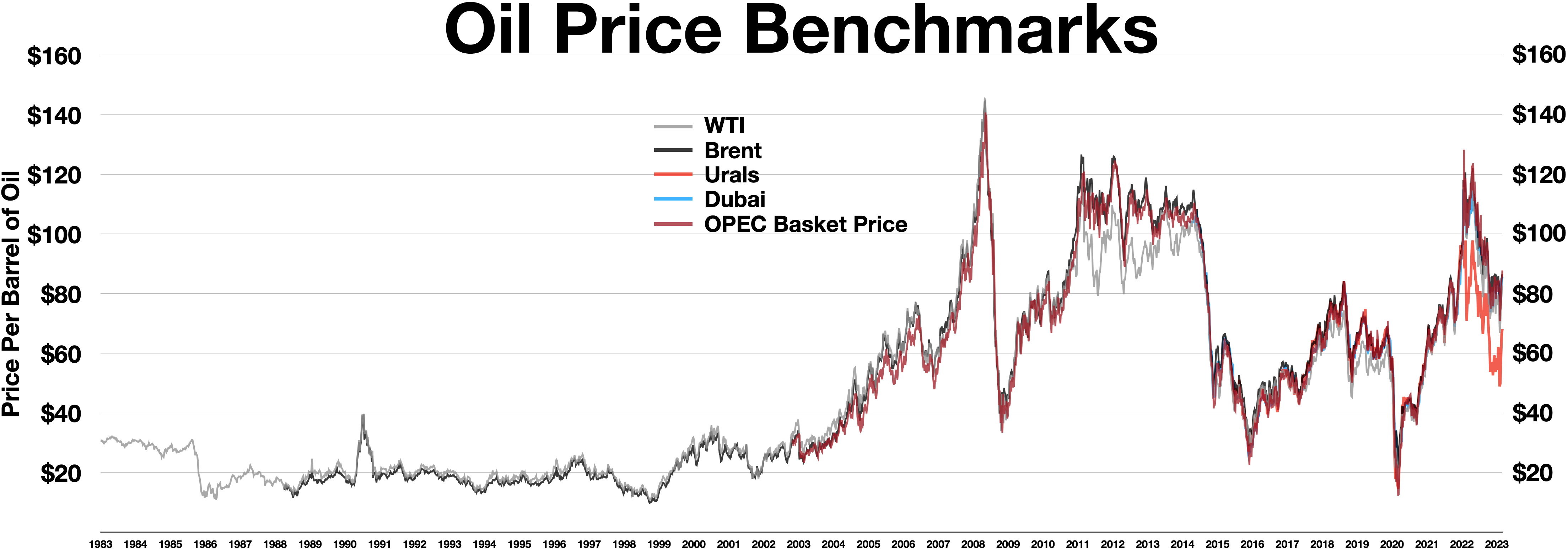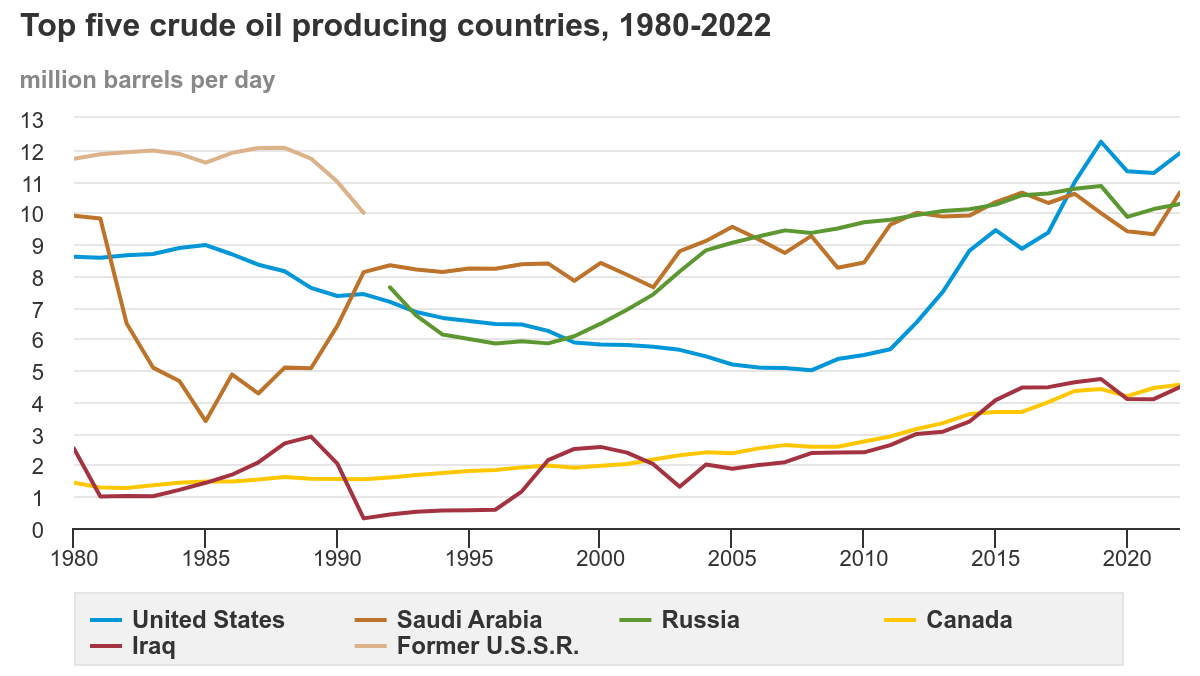|
OPEC
The Organization of the Petroleum Exporting Countries (OPEC ) is an organization enabling the co-operation of leading oil-producing and oil-dependent countries in order to collectively influence the global oil market and maximize Profit (economics), profit. It was founded on 14 September 1960 in Baghdad by the first five members: Iran, Iraq, Kuwait, Saudi Arabia, and Venezuela. The organization, which currently comprises 12 member countries, accounted for 38 percent of List of countries by oil production, global oil production, according to a 2022 report. Additionally, it is estimated that 79.5 percent of the world's proven oil reserves are located within OPEC nations, with the Middle East alone accounting for 67.2 percent of OPEC's total reserves.Organization of the Petroleum Exporting Countries. (2023). ''OPEC Annual Statistical Bulletin'' (58th ed.), 90 pages. Retrieved from https://asb.opec.org/. ISSN: 0475-0608. (See pages 7 and 22). In a series of steps in the 1960s and ... [...More Info...] [...Related Items...] OR: [Wikipedia] [Google] [Baidu] [Amazon] |
Price Of Oil
The price of oil, or the oil price, generally refers to the spot price of a barrel () of benchmark crude oil—a reference price for buyers and sellers of crude oil such as West Texas Intermediate (WTI), Brent Crude, Dubai Crude, OPEC Reference Basket, Tapis crude, Bonny Light, Urals oil, Isthmus, and Western Canadian Select (WCS). Oil prices are determined by global supply and demand, rather than any country's domestic production level. Through the years The global price of crude oil was relatively consistent in the nineteenth century and early twentieth century. This changed in the 1970s, with a significant increase in the price of oil globally. There have been a number of structural drivers of global oil prices historically, including oil supply, demand, and storage shocks, and shocks to global economic growth affecting oil prices. Notable events driving significant price fluctuations include the 1973 OPEC oil embargo targeting nations that had supported I ... [...More Info...] [...Related Items...] OR: [Wikipedia] [Google] [Baidu] [Amazon] |
List Of Countries By Oil Production
This is a list of countries by oil production (i.e., petroleum production), as compiled from the U.S. Energy Information Administration database for calendar year 2023, tabulating all countries on a comparable best-estimate basis. Compared with shorter-term data, the full-year figures are less prone to distortion from periodic maintenance shutdowns and other seasonal cycles. The volumes in the table represent crude oil and lease condensate, the hydrocarbon liquids collected at or near the wellhead. The volumes in this table does not include biofuel, refinery gain (the increase in liquid volumes during oil refining), or liquids separated from natural gas in gas processing plants (natural gas liquids). Production data including these other liquids is usually referred to as "Total Liquids Production", "Petroleum & Other Liquids", etc. Under this definition (crude and condensate), total world oil production in 2023 averaged 81,804,000 barrels per day. Approximately 72% of worl ... [...More Info...] [...Related Items...] OR: [Wikipedia] [Google] [Baidu] [Amazon] |
Nationalization Of Oil Supplies
The nationalization of oil supplies refers to the process of confiscation of oil production operations and their property, generally for the purpose of obtaining more revenue from oil for the governments of oil-producing countries. This process, which should not be confused with restrictions on crude oil exports, represents a significant turning point in the development of oil policy. Nationalization eliminates private business operations—in which private international companies control oil resources within oil-producing countries—and transfers them to the ownership of the governments of those countries. Once these countries become the sole owners of these resources, they have to decide how to maximize the net present value of their known stock of oil in the ground. Several key implications can be observed as a result of oil nationalization. "On the home front, national oil companies are often torn between national expectations that they should 'carry the flag' and their own am ... [...More Info...] [...Related Items...] OR: [Wikipedia] [Google] [Baidu] [Amazon] |
Haitham Al-Ghais
Haitham al-Ghais (; born October 1969) is a Kuwaiti oil executive and diplomat who has served as Secretary General of OPEC since 2022. Early life and education Al-Ghais was born in October 1969 in Kuwait City, Kuwait. His father served as Kuwait's governor at OPEC. In 1990, he graduated from the University of San Francisco with a degree in political science. Career From 1991 to 1993, Al-Ghais operated in the Kuwaiti Ministry of Foreign Affairs. In 1993, he joined the International Marketing Sector of the Kuwait Petroleum Corporation (KPC), later serving as its Crude Oil Marketing Representative and leading the company's regional offices in China and the United Kingdom The United Kingdom of Great Britain and Northern Ireland, commonly known as the United Kingdom (UK) or Britain, is a country in Northwestern Europe, off the coast of European mainland, the continental mainland. It comprises England, Scotlan .... In 2021, Al-Ghais was appointed as KPC's Deputy Managing ... [...More Info...] [...Related Items...] OR: [Wikipedia] [Google] [Baidu] [Amazon] |
List Of Secretaries General Of OPEC
Below is a list with each secretary general of the Organization of the Petroleum Exporting Countries (OPEC), based on the organization's official publications. The secretary general is OPEC's chief executive officer. Notes References {{OPEC, state=expanded Lists of office-holders, Secretaries General of OPEC Secretaries general of OPEC, * ... [...More Info...] [...Related Items...] OR: [Wikipedia] [Google] [Baidu] [Amazon] |
1970s Energy Crisis
The 1970s energy crisis occurred when the Western world, particularly the United States, Canada, Western Europe, Australia, and New Zealand, faced substantial petroleum shortages as well as elevated prices. The two worst crises of this period were the 1973 oil crisis and the 1979 energy crisis, when, respectively, the Yom Kippur War and the Iranian Revolution triggered interruptions in Middle Eastern oil exports. The crisis began to unfold as petroleum production in the United States and some other parts of the world peaked in the late 1960s and early 1970s. World oil production per capita began a long-term decline after 1979. The oil crises prompted the first shift towards energy-saving (in particular, fossil fuel-saving) technologies. The major industrial centers of the world were forced to contend with escalating issues related to petroleum supply. Western countries relied on the resources of countries in the Middle East and other parts of the world. The crisis led to stagnan ... [...More Info...] [...Related Items...] OR: [Wikipedia] [Google] [Baidu] [Amazon] |
Saudi Arabia
Saudi Arabia, officially the Kingdom of Saudi Arabia (KSA), is a country in West Asia. Located in the centre of the Middle East, it covers the bulk of the Arabian Peninsula and has a land area of about , making it the List of Asian countries by area, fifth-largest country in Asia, the largest in the Middle East, and the List of countries and dependencies by area, 12th-largest in the world. It is bordered by the Red Sea to the west; Jordan, Iraq, and Kuwait to the north; the Persian Gulf, Bahrain, Qatar and the United Arab Emirates to the east; Oman to the southeast; and Yemen to Saudi Arabia–Yemen border, the south. The Gulf of Aqaba in the northwest separates Saudi Arabia from Egypt and Israel. Saudi Arabia is the only country with a coastline along both the Red Sea and the Persian Gulf, and most of Geography of Saudi Arabia, its terrain consists of Arabian Desert, arid desert, lowland, steppe, and List of mountains in Saudi Arabia, mountains. The capital and List of cities ... [...More Info...] [...Related Items...] OR: [Wikipedia] [Google] [Baidu] [Amazon] |
Vienna
Vienna ( ; ; ) is the capital city, capital, List of largest cities in Austria, most populous city, and one of Federal states of Austria, nine federal states of Austria. It is Austria's primate city, with just over two million inhabitants. Its larger metropolitan area has a population of nearly 2.9 million, representing nearly one-third of the country's population. Vienna is the Culture of Austria, cultural, Economy of Austria, economic, and Politics of Austria, political center of the country, the List of cities in the European Union by population within city limits, fifth-largest city by population in the European Union, and the most-populous of the List of cities and towns on the river Danube, cities on the river Danube. The city lies on the eastern edge of the Vienna Woods (''Wienerwald''), the northeasternmost foothills of the Alps, that separate Vienna from the more western parts of Austria, at the transition to the Pannonian Basin. It sits on the Danube, and is ... [...More Info...] [...Related Items...] OR: [Wikipedia] [Google] [Baidu] [Amazon] |
Cartel
A cartel is a group of independent market participants who collaborate with each other as well as agreeing not to compete with each other in order to improve their profits and dominate the market. A cartel is an organization formed by producers to limit competition and increase prices by creating artificial shortages through low production quotas, stockpiling, and marketing quotas. Jurisdictions frequently consider cartelization to be anti-competitive behavior, leading them to outlaw cartel practices. Cartels are inherently unstable due to the temptation by members of the cartel to cheat and defect on each other by improving their individual profits, which may lead to falling prices for all members. The doctrine in economics that analyzes cartels is cartel theory. Cartels are distinguished from other forms of collusion or anti-competitive organization such as corporate mergers. Advancements in technology or the emergence of substitutes can undermine cartel pricing power, leadi ... [...More Info...] [...Related Items...] OR: [Wikipedia] [Google] [Baidu] [Amazon] |
Seven Sisters (oil Companies)
Big Oil is a name sometimes used to describe the world's six or seven largest publicly traded and investor-owned oil and gas companies, also known as supermajors. The term, particularly in the United States, emphasizes their economic power and influence on politics. Big Oil is often associated with the fossil fuels lobby and also used to refer to the industry as a whole in a pejorative or derogatory manner. Sources conflict on the exact makeup of Big Oil today, though the companies which are most frequently mentioned as supermajors are ExxonMobil, Shell, TotalEnergies, BP, Chevron and Eni, with ConocoPhillips frequently being included as well prior to spinning off its downstream operations into Phillips 66. The phrase "Super-Major" emanated from a report published by Douglas Terreson of Morgan Stanley in February 1998. The report foretold a substantial consolidation phase of "Major" Oil companies which would result in a group of dominant "Super-Major" entities. Big Oil prev ... [...More Info...] [...Related Items...] OR: [Wikipedia] [Google] [Baidu] [Amazon] |
Kuwait
Kuwait, officially the State of Kuwait, is a country in West Asia and the geopolitical region known as the Middle East. It is situated in the northern edge of the Arabian Peninsula at the head of the Persian Gulf, bordering Iraq to Iraq–Kuwait border, the north and Saudi Arabia to Kuwait–Saudi Arabia border, the south. With a coastline of approximately , Kuwait also shares a maritime border with Iran, across the Persian Gulf. Kuwait is a city-state, most of the country's population reside in the urban area, urban agglomeration of Kuwait City, the capital and largest city. , Kuwait has a population of 4.82 million, of which 1.53 million are Kuwaiti nationality law, Kuwaiti citizens while the remaining 3.29 million are Expatriates in Kuwait, foreign nationals from over 100 countries. Kuwait has the world's third List of sovereign states by immigrant and emigrant population, largest number of foreign nationals as a percentage of the population, where its citizens make up less th ... [...More Info...] [...Related Items...] OR: [Wikipedia] [Google] [Baidu] [Amazon] |






